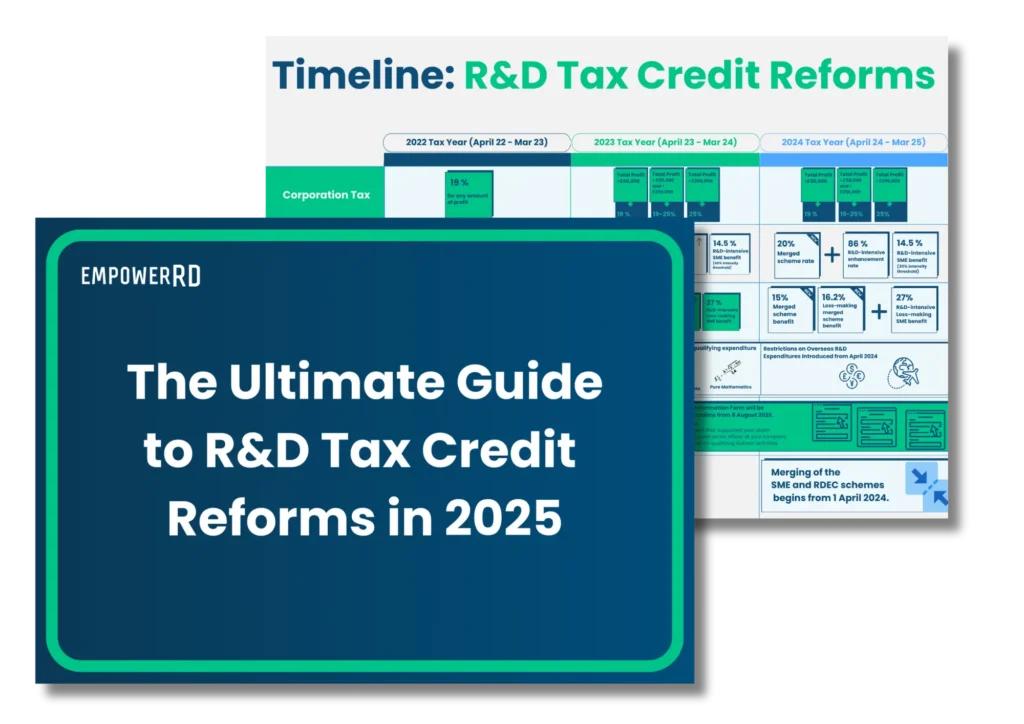1. R&D is vital, and scrutiny is rising
R&D tax credits are one of the UK’s most important incentives for innovation. It supports growth in AI, life sciences and manufacturing. But compliance checks are now routine, not occasional.
High levels of error in the SME scheme forced HMRC to tighten the process. The Additional Information Form, Claim Notification Form and the Mandatory Random Enquiry Programme have become central to making a claim.
2. What HMRC says
HMRC’s 2023/24 data shows signs of progress.
The error and fraud rate in the SME scheme dropped to 14.6%, down from 25.8% in 2021/22. Seventeen per cent of claims were checked, totalling 9,700 compliance reviews, each lasting an average of 246 days. For HMRC, this shows the system is working as intended.
3. What EmpowerRD found
Our UK Innovation Report 2025, based on 500 scale-up leaders, paints a sharper picture.
One in four scale-ups reported an HMRC enquiry in the past year. More than half have faced one within the last two years. Scale-ups are heavier claimants, so they attract more scrutiny. The report also captures the experiences of founders and finance leaders directly, and covers the 2024/25 period, while HMRC’s published data lags behind.
4. The impact on scale-ups
HMRC Enquiries disrupt the flow of business. Cashflow can be frozen, leadership teams spend months responding to requests, and uncertainty spreads.
Some businesses reported enquiries landing months after claims were filed, long after funds had been reinvested. In the worst cases, this forced claim retractions and left companies facing severe cashflow strain. For a scale-up investing the average £1.46m in R&D, that disruption can mean delayed hiring or shelved projects.
A further 25% of respondents said they fear enquiries before even starting a claim. That hesitation weighs heavily on growth ambitions.
5. Why this matters
If genuine businesses are discouraged, the scheme risks losing its purpose: fuelling innovation.
Intent is high; 82% of scale-ups plan to claim in 2025. But action is slowing, with SME claims dropping by 23% in 2022/23. The gap between ambition and delivery is widening.
6. How to respond
Founders can take practical steps. Document from the start, assume every claim could be checked, and keep costs transparent. Use structured platforms to cut errors and admin. Support reforms such as Advance Clearance, which could provide more certainty.
7. Next steps
Scrutiny will remain part of the scheme. But with the right preparation, enquiries don’t have to stall innovation.
Download The UK Innovation Report 2025 to see how your business compares.







